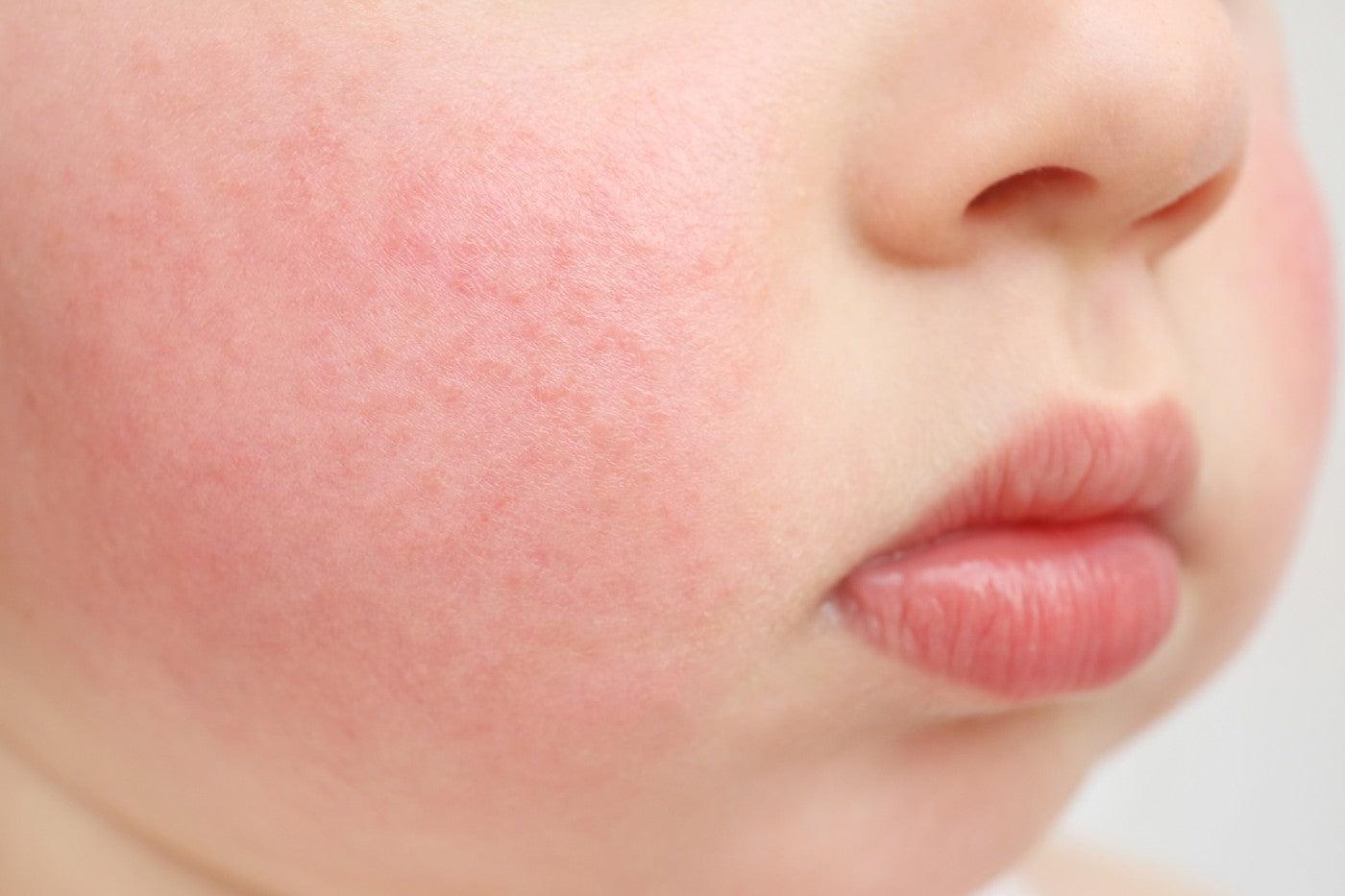TODDLER
What to Know About Fifth Disease in Babies and Kids
If you have gotten a letter from nursery that there was an outbreak of Fifth Disease, you might understandably be concerned. After all...what the heck is fifth disease?

Written by
Dr. Harvey Karp

If you have gotten a letter from school or nursery that there was an outbreak of fifth disease, you might understandably be concerned. After all...what the heck is fifth disease?
What is fifth disease in babies and kids?
Known more formally as erythema infectiosum, the illness got its nickname because it was the fifth most common cause of a skin rashes plus fever in kids (after measles, German measles, scarlet fever, and roseola). Fifth disease is caused by a common virus, parvovirus B19. Its most obvious feature is a red rash on the cheeks that looks almost like they were slapped.
Fifth disease can happen at any age. It is most common among school-aged kids, but the virus can infect anyone. Fortunately, for most littles, it is a mild condition that usually crops up in the late winter or early spring months and goes away on its own.
How do I know if my kid has fifth disease?
The best-known symptom is a bright red rash on your child’s cheeks, the so called 'slapped cheek' appearance. In fact, the cheek rash is such a telltale sign, that doctors can often diagnose fifth disease based on that alone!
A lacy rash pattern can also show up over the chest, abdomen, arms, legs, and possibly the soles of the feet. It goes away in about seven to 10 days, but your child might get really itchy during this time, and the rash might come back right after a bath.
Prior to the rash, kids often have fever, runny nose, headache, sore throat, or feel tired. They may also have some swelling or pain in their joints, although this is more common in adults. Swollen or painful joints typically last a few weeks but may take even longer to disappear.
How does fifth disease spread in babies and kids?
Since fifth disease spreads by respiratory droplets, your child can catch it from someone else’s coughs or sneezes. However, once you or your child has had fifth disease, the immunity from it will generally protect you from any other infection caused by parvovirus B19 (a small silver lining!).
How long are kids contagious with fifth disease?
Once you notice a rash on your child's body, they are no longer contagious. This means they could have infected other children prior to this when they seemed to just have a common cold. So as gnarly as that rash may look, once your child has the rash, they are actually probably fine to go back to daycare or school. However, if they have a weakened immune system or an immune condition, they could be contagious for longer.
What do I need to know about fifth disease and pregnancy?
It is possible to get fifth disease while pregnant, and the infection can be transmitted to the fetus. While it usually does not cause complications, it is important to let your provider know if you contract it or were exposed to an infected person. You might be prescribed medication to treat the virus. About 5% of babies in utero can develop severe anemia.
Do I need to see a doctor for fifth disease?
Kids or grown-ups who have an immune condition should notify their doctor as soon as possible if they become infected, as well as people who have anemia or related conditions, like sickle cell disease. It is also a good idea to call your child's provider if their symptoms get worse or their skin appears pale. But generally, unless you have concerns or questions, there is not too much your doctor can do.
How is fifth disease treated in children?
If your child is otherwise healthy—has no anemia or immune system concerns—generally, no treatment is necessary, and fifth disease goes away on its own. You may use over-the-counter medications to treat fever or pain if your child is uncomfortable. Of course, children who have more serious conditions may need other medications, or even a blood transfusion, to treat the virus and recover.
So, if you get that dreaded nursery note or see those telltale flushed cheeks, try not to worry too much. But as always, if you have any questions or worries, your provider will be able to help you through them!
Disclaimer: The information on our site is NOT medical advice for any specific person or condition. It is only meant as general information. If you have any medical questions and concerns about your child or yourself, please contact your health provider. Breastmilk is the best source of nutrition for babies. It is important that, in preparation for and during breastfeeding, mothers eat a healthy, balanced diet. Combined breast- and bottle-feeding in the first weeks of life may reduce the supply of a mother's breastmilk and reversing the decision not to breastfeed is difficult. If you do decide to use infant formula, you should follow instructions carefully.
SHARE THIS ARTICLE
PARENT PICKS
Bestsellers



















